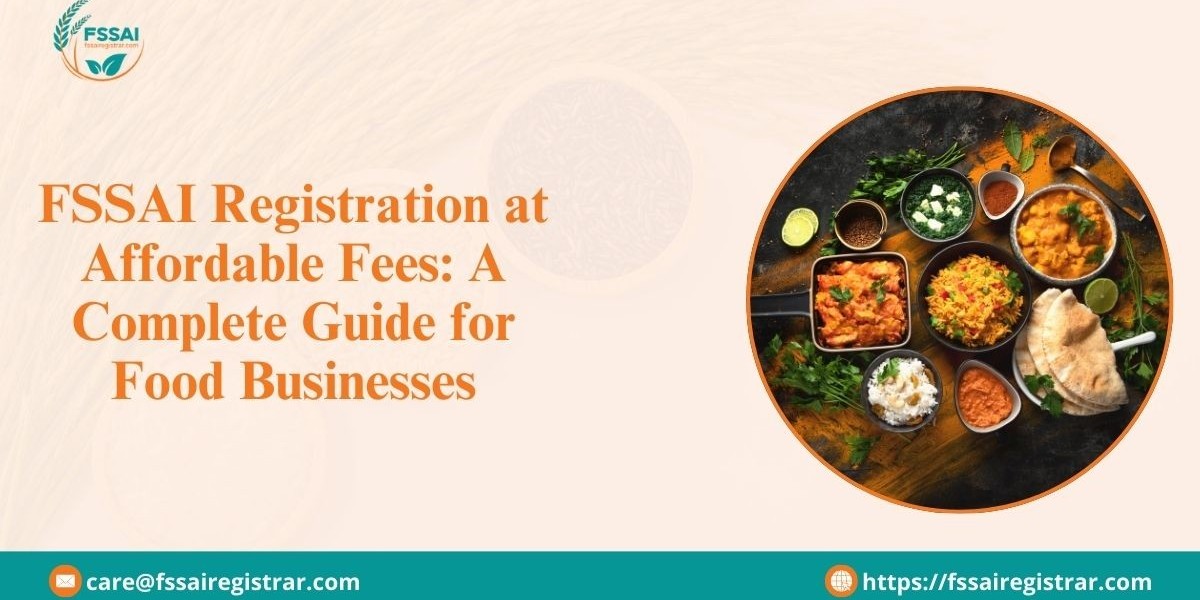The food delivery industry is growing fast in India. With the rise of food delivery apps like Swiggy, Zomato, Uber Eats, and others, more people are ordering meals from the comfort of their homes. This has created great opportunities for restaurants, cloud kitchens, home chefs, and even delivery agents.
However, if you are involved in any part of the food delivery process — whether you prepare the food, deliver it, or run a platform — FSSAI Registration Online is mandatory.
In this guide, we’ll explain what FSSAI registration is, why it’s important for food delivery partners, how to apply, the documents you need, and the benefits of having this license. Everything is explained in simple language, step by step, so you can complete the process without confusion or delay.
What is FSSAI?
FSSAI stands for Food Safety and Standards Authority of India. It is the government body responsible for ensuring food safety and hygiene across the country.
FSSAI issues licenses and registrations to food businesses. This includes everything from large food factories to small food stalls and even food delivery agents.
The main goal of FSSAI is to make sure that the food being sold and delivered to customers is safe, clean, and fit for consumption.
Why Do Food Delivery Partners Need FSSAI Registration?
Many people think that only restaurants or food manufacturers need FSSAI registration. But according to the Food Safety and Standards Act, 2006, anyone involved in the food chain — including delivery partners — must be registered.
Here’s why FSSAI registration is important for food delivery businesses and partners:
It’s Legally Mandatory: Every food business operator (FBO) must be registered with FSSAI. If you’re delivering food or running a cloud kitchen, you are an FBO.
Builds Trust: FSSAI registration shows that your food is prepared and delivered safely. It builds trust with customers and delivery platforms.
Required by Online Platforms: Most food delivery apps ask for FSSAI registration before listing your restaurant or food outlet.
Avoids Legal Problems: If you operate without registration, you may face penalties, fines, or even business closure by authorities.
Improves Brand Value: Being registered with FSSAI increases your credibility in the market and helps grow your business.
Who Needs FSSAI Registration in the Food Delivery Industry?
Let’s take a look at who needs FSSAI registration in the food delivery system:
1. Cloud Kitchens
These are kitchens that prepare food only for delivery — no dine-in. They must be registered.
2. Home Chefs
If you cook food at home and sell it through delivery apps or social media, you need FSSAI registration.
3. Restaurants and Cafes
If you offer delivery services or sell through food delivery apps, you must be FSSAI registered.
4. Food Delivery Agents
Even if you only deliver food prepared by someone else, you are part of the food chain and need basic registration.
5. Tiffin Services
Anyone offering meal delivery, including tiffin boxes, must get registered.
6. Online Food Businesses
Any website or app delivering food or beverages must be FSSAI compliant.
Types of FSSAI Licenses
FSSAI offers three types of licenses based on the size and type of your food business.
1. Basic FSSAI Registration
For small businesses or startups
Annual turnover less than ₹12 lakhs
Ideal for home kitchens, small tiffin services, and individual delivery partners
2. State FSSAI License
For medium businesses
Annual turnover between ₹12 lakhs and ₹20 crores
Required for restaurants and cloud kitchens serving large areas
3. Central FSSAI License
For large food chains or businesses with operations in multiple states
Annual turnover over ₹20 crores
Required for big food delivery companies and aggregators
For most food delivery partners, Basic Registration or State License is sufficient.
Documents Required for FSSAI Registration
Here’s a list of the basic documents needed for FSSAI registration:
For Individuals / Home Chefs / Delivery Partners:
Passport-size photograph
Aadhaar card or any valid ID proof
Address proof (rent agreement, electricity bill, etc.)
Details of the food items to be handled
For Restaurants / Cloud Kitchens / Tiffin Services:
Passport-size photo of owner
Identity and address proof of owner
Proof of possession of premises (rent or ownership papers)
Business registration certificate (if any)
Food category details
Kitchen layout or map
Water testing report (for State/Central license)
GST, PAN, and other applicable licenses
How to Apply for FSSAI Registration – Step-by-Step Process
You can apply for FSSAI registration online. Here’s how to do it easily:
Visit Website – Open the official FSSAI registration portal.
Fill Application Form – Enter your name, business details, and food category, and upload your PAN card.
Review & Submit – Check all details and submit the form.
Pay Fee – Complete the payment online as per your license type.
Verify OTP – Enter the OTP sent to your registered mobile or email.
Inspection (If Required) – Officials may inspect your premises for approval.
Get an FSSAI License – Once approved, download your FSSAI license from the website
Validity and Renewal
FSSAI registration is valid for 1 to 5 years, based on your selection during application.
You should apply for renewal at least 30 days before expiry to avoid penalties.
Benefits of FSSAI Registration for Food Delivery Partners
1. Legal Compliance
Avoid legal trouble, fines, and cancellation of online listings.
2. Trust and Credibility
Customers prefer ordering from FSSAI-registered food providers.
3. Access to Delivery Apps
Most apps like Swiggy or Zomato ask for an FSSAI number before listing.
4. Growth Opportunities
With proper registration, you can expand to new cities or open more outlets.
5. Improved Hygiene and Standards
Following FSSAI rules ensures better food quality, cleanliness, and safety.
Penalty for Not Having FSSAI Registration
If you operate without FSSAI registration:
You can be fined up to ₹5 lakhs
Your business may be shut down by authorities
You can be removed from food delivery platforms
To avoid all this, it is better to register on time.
Support for Registration
If you find the process difficult, you can take help from:
Chartered accountants or consultants
Online registration platforms
FSSAI help centers
State food safety offices
They can assist you with filling the form, uploading documents, and following up with authorities.
Suggested read: FSSAI license Renewal in India
Final Thoughts
If you are a part of India’s growing food delivery system — as a home chef, restaurant, cloud kitchen, or delivery partner — getting FSSAI registration is the first step to success. It ensures that your food is safe, your business is legal, and your customers are satisfied.
The process is easy, affordable, and can be completed online in a few steps. Don’t wait for a problem or complaint to act — get your FSSAI certificate today and run your food business with confidence.
Register now, stay compliant, and grow your food delivery business the right way.




